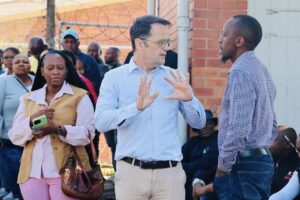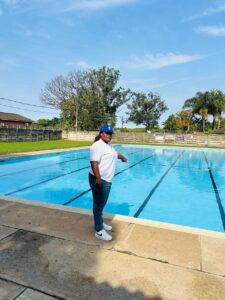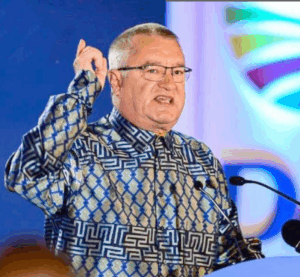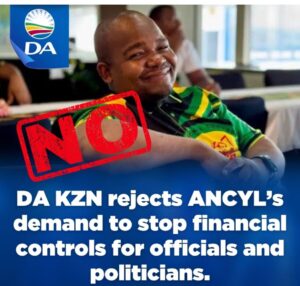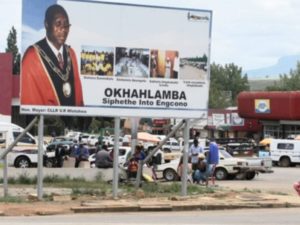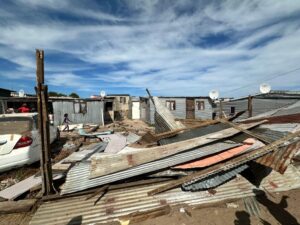Note to Editors: The following debate was delivered during a Sitting of the KZN Legislature held today|
KwaZulu-Natal’s (KZN) farmers are under siege from forces beyond their control. During the current financial year alone, natural disasters have destroyed R65million worth of agricultural output in our province. Crops have been lost, livestock wiped out and, with them, the livelihoods of thousands of families who depend on agriculture for survival.
Yet compensation by the provincial government has not reached these farmers. They continue to wait while debts mount, workers are retrenched and communities slip deeper into poverty. This is not only a farming problem, it is also a provincial crisis.
The principle of state responsibility is clear: when disasters strike, government has a duty to step in. The principle of fairness is equally clear: farmers who feed the nation should not be abandoned when nature takes away their ability to do so.
Recent evidence underscores the urgency. Nationally, agriculture contracted by almost 29% during the third quarter of 2024 due to the El Niño drought and climate shocks. Global and local studies, including the 2025 United Nations Office for Disaster Risk Reduction (UNDRR) Global Assessment Report and peer-reviewed climate-agriculture studies, show that Southern Africa faces a rising frequency and intensity of droughts, storms, and animal-disease outbreaks. The science is unequivocal: if we do not invest in resilience and safety nets now, the costs will only grow.
We must, however, welcome where progress has been made. The announcement of a Foot-and-Mouth Disease (FMD) task team at national level is a step in the right direction, as is the renewed focus on phytosanitary systems to keep export markets open. These measures matter for KZN’s livestock and crop sectors – but they will mean little if farmers cannot survive long enough to benefit.
And here lies the credibility gap. Too often, farmers have been promised support that never arrives. Consider the heartbreaking story of Mlungisi Xulu, who leads the SheepCor Midlands cooperative of black emerging farmers. In 2019, provincial government promised R60million through the Agribusiness Development Agency (ADA) for an intensive sheep production project. The money was budgeted, recorded and supposedly disbursed into the system. Yet it never reached the farmers it was meant to empower. Instead, it left those farmers in debt, with idle equipment and broken trust.
KZN’s Government of Provincial Unity GPU) must ensure that such betrayal never happens again. The GPU was created to put people before politics and it must now show farmers that it will not fail them.
As a proud member of the GPU, the Democratic Alliance (DA) proposes the establishment of a Provincial Agricultural Disaster Risk and Recovery Fund, a fund that is ring-fenced, transparent and insulated from political influence. This Fund would:
• Compensate verified disaster losses quickly and fairly, with an explicit target of paying out 80% of claims within 30 days
• Invest in resilience including drought-resistant seed, water infrastructure, livestock health and cold-chain systems and;
• Publish every transaction online so that farmers and citizens can see who is paid, when and what the payment is for.
The question is – how would government finance this? Not by raising new taxes, but by using what already exists, more wisely. The DA proposes:
• A fixed allocation from state investment dividends and lease revenues on provincial agricultural assets. If government invests on behalf of its people, then a portion of those returns must be reinvested to protect the very people who create our food security
• Parametric insurance and reinsurance layers to cover extreme events, with payouts triggered automatically by weather indices
• Public-private partnerships structured properly: government funds the public goods – disaster payouts, extension, biosecurity, while private partners co-fund productive assets, matched rand-for-rand, with full independent oversight.
This is not theory. Research by the Bureau for Food and Agricultural Policy (BFAP) in its 2025 Baseline confirms that export-led agricultural growth is possible, but only if producers remain bankable during climate shocks. Relief delayed is relief denied, and it is also economic sabotage. If we fail to act, more stories such as Mlungisi Xulu’s will unfold and farmers promised empowerment will be handed despair. If government succeeds, it will restore trust, protect rural jobs and keep food prices stable for every household in KZN.
Food security is national security. Every rand invested in disaster relief for farmers is a rand invested in social stability and economic growth. Every farm saved is a community sustained.
The DA, as a partner within KZN’s Government of Provincial Unity (GPU) will insist that this administration moves beyond promises, beyond bureaucracy and beyond corruption. This Fund needs to be established, capitalised transparently and start delivering swift, fair and accountable relief to KZN’s farmers. We owe it to them, to their workers, and to the millions of citizens whose lives depend on the food they produce.
